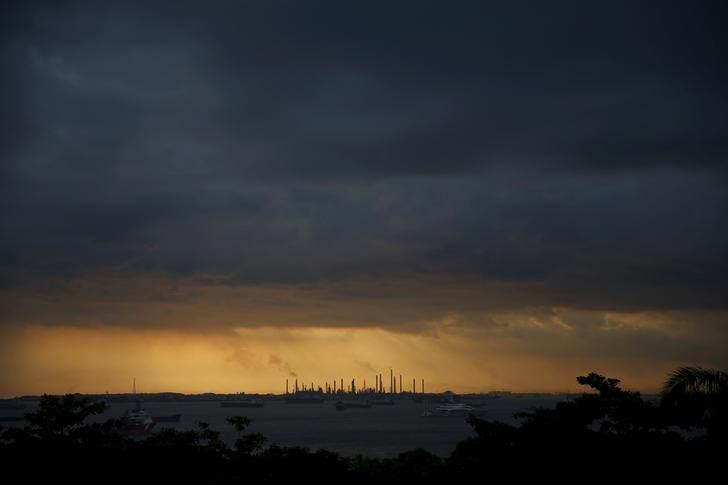By Gina Lee
Investing.com – Oil was down on Monday morning in Asia, tumbling around $4 as a nine-day lockdown in the Chinese city of Shanghai sparked fuel demand concerns.
Brent oil futures fell 2.68% to $114.22 by 12:40 PM ET (4:40 AM GMT) and WTI futures slid 3.03% to $110.45. Both Brent and WTI futures rose 1.4% on Friday, recording their first weekly gains in three weeks.
The week ahead looks to be filled with uncertainty, with the war in Ukraine triggered by the Russian invasion of Feb. 24 entering a second month.
China, the world's largest crude importer, also expanded lockdowns to curb its latest COVID-19 outbreak. All firms and factories in Shanghai would suspend manufacturing or have people work remotely in a two-stage lockdown over nine days. Public transport, including ride-hailing services, will also be suspended.
"Shanghai's lockdown prompted a fresh sell-off from disappointed investors as they expected such a lockdown would be avoided," Fujitomi Securities Co Ltd. chief analyst Kazuhiko Saito told Reuters.
The market had factored in the impact of a missile attack on a Saudi oil distribution facility the previous Friday, but “as the Organization of the Petroleum Exporting Countries and allies (OPEC+) is less likely to raise oil output at a faster pace than the recent months, we expect the oil market to turn bullish again later this week," he added.
Yemen's Houthis said on Friday that they launched attacks on Saudi energy facilities, hitting Aramco’s petroleum products distribution station in Jeddah and causing a fire in two storage tanks. However, no casualties were reported.
OPEC+ members will meet on Thursday, but the cartel has so far resisted calls from producers including the U.S. to further boost output and stuck to a plan to raise output by 400,000 barrels per day (bpd) each month since August 2021.
The U.S. is also reportedly considering another release of oil from the Strategic Petroleum Reserve that could be bigger than the sale of 30 million barrels earlier in the month.
"Additional release, however, may cause fears of a shortage of already-lower inventories which will limit further release in the future," Fujitomi's Saito said, with global stockpiles at their lowest level since 2014.
